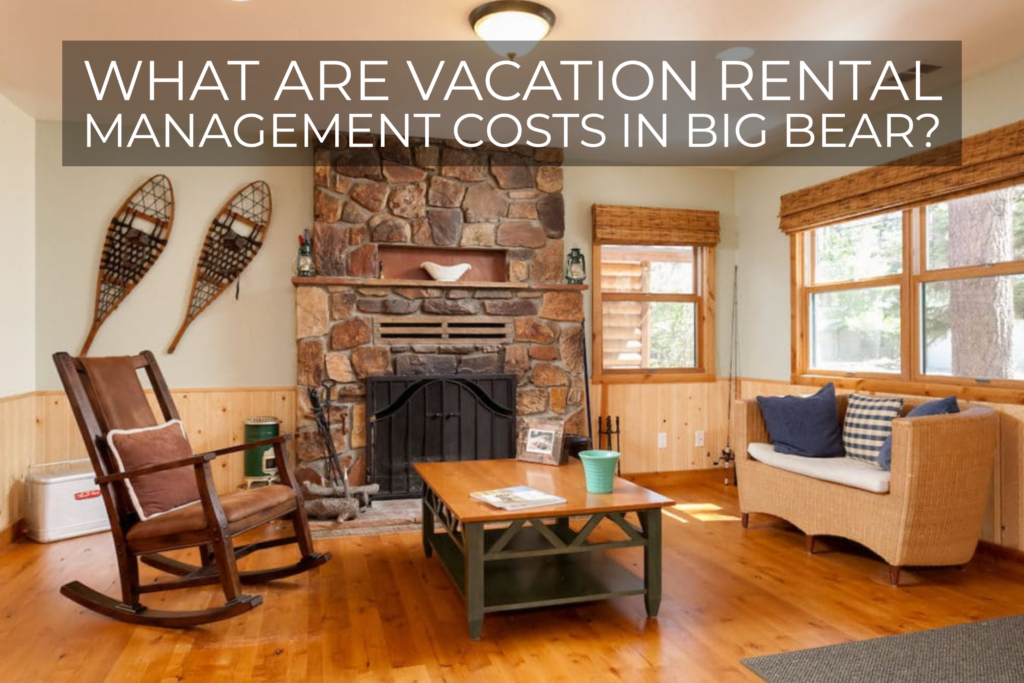What expenses are associated with managing a vacation rental in Big Bear?
A common question we get from our clients is, “What are the costs associated with owning, managing, and maintaining a vacation rental cabin in Big Bear?” This is an excellent question and is one that should be considered by every homebuyer shopping in the Big Bear real estate market. Costs can vary significantly based on several factors, including what type of management model you choose. See below a list of typical costs and expenses you can expect to have as the owner of an active Big Bear vacation rental investment property.
1. Mortgage
Assuming you obtain a mortgage loan to purchase your investment property, your monthly mortgage payment, including principal and interest*, will be among your largest costs associated with ownership. It is important to have a solid understanding of you loan terms, interest rate, and monthly payment, so make sure you discuss this with your lender and/or mortgage broker.
2. Taxes
Property taxes are due biannually, though may be paid in monthly installments with your loan payment, depending on how your loan is structured*. Under California Prop.13, property taxes are 1% of the purchase price of the property, plus local taxes. Figure to pay about 1.3% of the sales price. Future increases in assessed value are limited to an annual inflation factor of no more than 2%.**
Owners whose vacation rentals are located in the City of Big Bear Lake need to pay TOT (Transient Occupancy Tax) and TBID (Tourism Business District) assessment to the city. TOT is equal to 8% of the gross rental receipts and TBID is 3% of gross receipts – 11% total, due quarterly. If you use a vacation rental company to manage your home they may charge these fees directly to the guest, so you would not have to factor this into your overhead.
3. Insurance
Lenders require the property to have a homeowners insurance (aka fire insurance) policy covering the property to protect them against loss. Even if you are not getting a loan to purchase the property it is highly recommended that you get insurance to protect yourself. Shop around, not all insurance companies offer the same coverage and premiums vary. This is especially true in the unique mountain community of Big Bear.
Most rental management companies will require that you have a “short-term/transient rental” type of insurance. Typical coverage amounts required are $500,000-$1M.
4. Utilities (gas, electric, water, cable, internet, etc.)
Utility costs can be very high during peak rental seasons, especially during winter months. Costs can also vary widely depending on occupancy rates and other factors. Installing a remote wifi thermostat, such as a Nest, can help manage gas usage for heating. Electricity costs will be higher if running a hot tub. Excessive water usage can be mitigated with the use of low-flow fixtures. Having internet at your cabin is highly recommended since it is more or less expected these days. Cable is not necessarily required; if you furnish the home with Smart TVs, guests will be able to stream Netflix, Hulu, YouTube, etc.
5. Property management
If you use a vacation rental company to manage your home, you will pay a commission. Most vacation rental management companies charge between 25-30% of the nightly rents plus any incidental costs and fees.
Cleaning
If you use a vacation rental company to manage your home they usually charge these fees directly to the guest, so you likely would not have to factor this into your overhead. If you manage the property yourself “by owner”, you can hire a housekeeper to clean after each guest, or do the cleaning yourself.
Your home will be professionally cleaned in between bookings; however, a deep cleaning is usually necessary once or twice a year. You can do this yourself or hire a local housekeeper to get all the nooks and crannies. Carpet cleaning and dry cleaning of comforters twice a year is also recommended.
Maintenance
Rental companies aim to keep your guests happy and will send out a maintenance technician to help fix or troubleshoot common issues. This cost will vary widely and can be difficult to project. One company we are aware of charged $20 per maintenance call, plus any supplies or materials needed (extra batteries, light bulbs, coffee makers, cutting boards…you name it). This is why it’s important to make sure your home is well stocked and running smoothly. Other maintenance items that arise will need to be addressed. If something material breaks at the home, like an oven, water heater, or a broken pipe, the rental company will usually coordinate with licensed professionals to fix these items for you. This is when you should expect to receive a call and authorize any quotes or bids to be charged to your account and approve work to be completed.
Hot tubs
It is not necessary to have a hot tub, but they can have an impact on rental revenue and increase bookings. Hot tubs should be serviced weekly. Some vacation rental companies will have you contract with an outside vendor, and they charge about $75 per month. During peak seasons, the hot tub will need to be serviced more frequently (in between bookings, and as needed) for additional fees.
Snow Removal
Most streets are plowed by the city, however, driveways are not. Snow removal at your cabin is important. Guests typically are responsible for the snow removal once they are occupying the home, but the owner is responsible for ensuring the guest can access the home (and during heavy snowstorms, this can be challenging). The rental company can coordinate this for you. Some companies provide the snow removal for you at a fee, and some companies will have you contract with a third party vendor. Typical cost for the whole winter season is around $500-600, depending on the amount of snow removal needed.
Weed Abatement
Weed abatement and pine needle removal is required twice a year. The cost for this largely depends on how much needs to be removed. You can hire a yard care company or do it yourself. Do it by the deadlines to avoid fines or fees.
*Depending on how your loan is structured, your monthly payment can be the sum of the monthly loan service (principle and interest) plus the monthly property tax payment and homeowners insurance premium, also known as PITI. Every investor should have a good understanding of what their monthly PITI costs will be before making a decision to purchase a vacation rental investment property.
**For all tax related advice, consult with your CPA or tax professional.




This is all very very useful information thank you very much for laying all this out and cutting time in both research and meetings!
Thanks for your comment, let us know if you have any questions!
Very impressed (and thankful) for the in depth info provided on your site.
Thanks for the feedback! Let us know if you have any questions.
You should make this post like into a definitive guide or something. I bet a lot of your new readers that come to this site would want to be able to find this post. It’s too good to keep secret!
Matt, thanks for the suggestion!
Excellent post! It opened my eyes to the reality of owning a home there!
Thanks for your comment! Let us know if we can answer any questions you may have.
You made a good point that I should also be aware of property taxes when it comes to owning vacation home. The one I currently want to purchase is about an hour away from my home if I drive to it. Maybe hiring renal cleaning services will ensure that it’s regularly maintained even if I can physically be there.